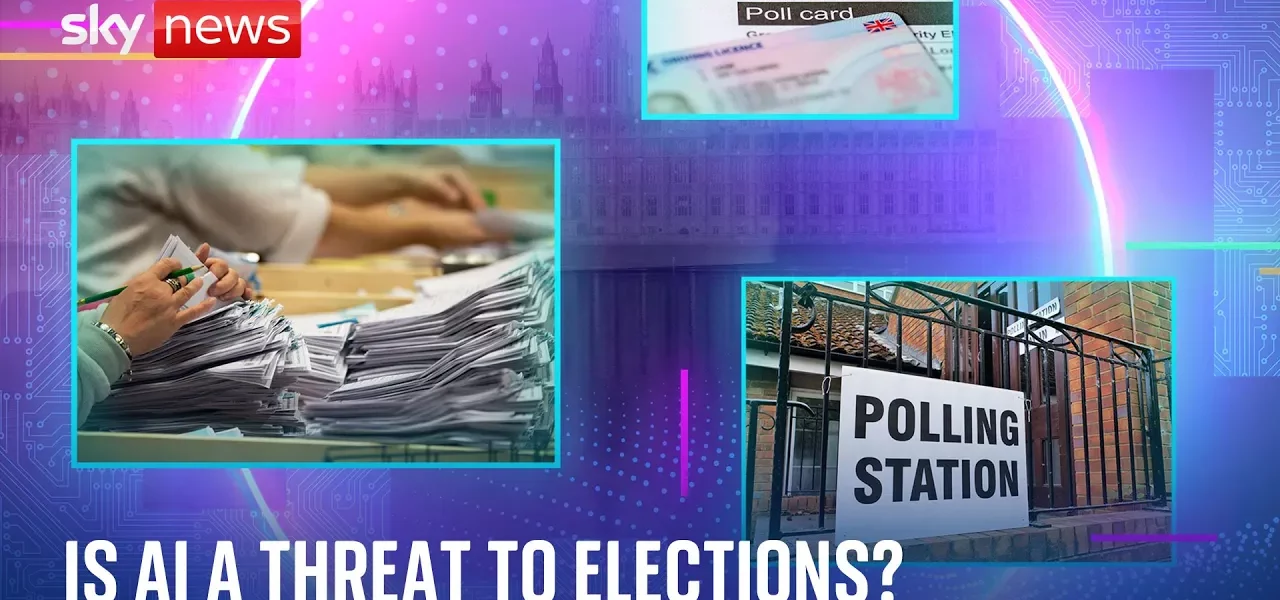Biden in a Wheelchair, Trump Firing a Machine Gun: The Rise of AI Video Generation

The advent of advanced AI video generation tools, such as OpenAI’s Sora, has sparked intense discussions regarding their potential for misuse, particularly in the political landscape. This article delves into the capabilities of these technologies, the concerns surrounding misinformation, and their implications for the future of media integrity.
Introduction to AI Video Generation
AI video generation is rapidly evolving, enabling users to create and manipulate videos with unprecedented ease. Tools like OpenAI’s Sora and other AI video generators allow individuals to transform text prompts into compelling visual content. This revolution in video technology has raised significant ethical questions, especially as we approach critical political events globally. With billions of people expected to participate in elections this year, the potential for AI-generated misinformation looms large.
Understanding OpenAI’s Sora and Its Capabilities
OpenAI’s Sora represents a breakthrough in video generation technology. By leveraging artificial intelligence, Sora can create realistic videos from text descriptions, animate still images, and combine various video clips into cohesive scenes. This section explores the core functionalities of Sora and its implications.
Transformative Features of Sora
- Text-to-Video Generation: Sora can transform written prompts into dynamic videos.
- Image Animation: It can animate still images, adding life to static content.
- Scene Composition: Users can merge multiple videos into a single scene seamlessly.
How Sora Works
Sora utilizes AI models trained on extensive datasets, incorporating licensed videos and publicly available content sourced from the internet. This approach enables it to generate lifelike videos, although it is not yet available to the public. OpenAI aims to launch the application by the end of this year, marking a significant milestone in AI technology.
Concerns Over Misinformation
As AI-generated videos become more sophisticated, concerns about misinformation and its impact on public perception grow. The ability to create convincing, albeit false, narratives raises ethical questions, particularly in the context of elections.
Deepfake Technology and Its Implications
Deepfakes, a product of AI video generation, can distort reality and propagate false information. This has serious implications for democratic processes and public trust.
Examples of Misuse in Politics
- AI-generated audio of President Biden misleading voters.
- Manipulated videos by the Republican National Committee depicting dire futures if Biden is re-elected.
- Over 100 deepfake ads impersonating UK Prime Minister Rishi Sunak on social media platforms.
These instances highlight the urgent need for regulatory measures to combat the potential for misuse of AI technologies.
The Role of Major Tech Companies
Technology giants like Microsoft and Google are investing heavily in video generation tools, each race to lead in this burgeoning field. This section discusses the contributions of these companies and their responsibilities.
Microsoft and Google’s Initiatives
Microsoft’s backing of OpenAI and Google’s launch of Lumere are indicative of the industry’s direction. Both companies recognize the potential applications of AI-generated content across various sectors, but they also face scrutiny regarding ethical usage.
Adobe’s Upcoming Video Generation Tool
Adobe plans to release its own AI video generation tool that allows users to manipulate existing videos creatively. This innovation underlines the competitive landscape of AI video technology, but also the responsibility that comes with such power.
Addressing Ethical Concerns and Regulatory Needs
The rapid advancement of AI video generation technologies necessitates urgent discussions about ethics and regulation. Experts emphasize the importance of transparency and accountability in AI development and usage.
Calls for Regulation
Artists, filmmakers, and other stakeholders have voiced concerns over the unauthorized use of their work to train AI models. This has led to a push for regulations that ensure consent and fair compensation for creators.
Impact on Public Trust
The proliferation of AI-generated content threatens to further erode trust in media and institutions. Experts caution that the mere existence of fake content can undermine public confidence, regardless of its immediate impact on voting behavior.
Conclusion
The rise of AI video generation tools like OpenAI’s Sora presents both opportunities and challenges. As technology continues to evolve, so too must our understanding of its implications for society, especially in the realm of politics. It is crucial for stakeholders to work collaboratively to establish ethical guidelines and regulatory frameworks to mitigate the risks associated with misinformation. As we move forward, staying informed and engaged with these developments is vital. For more insights on AI technologies and their societal impacts, explore our related articles on digital ethics and misinformation.
“`




